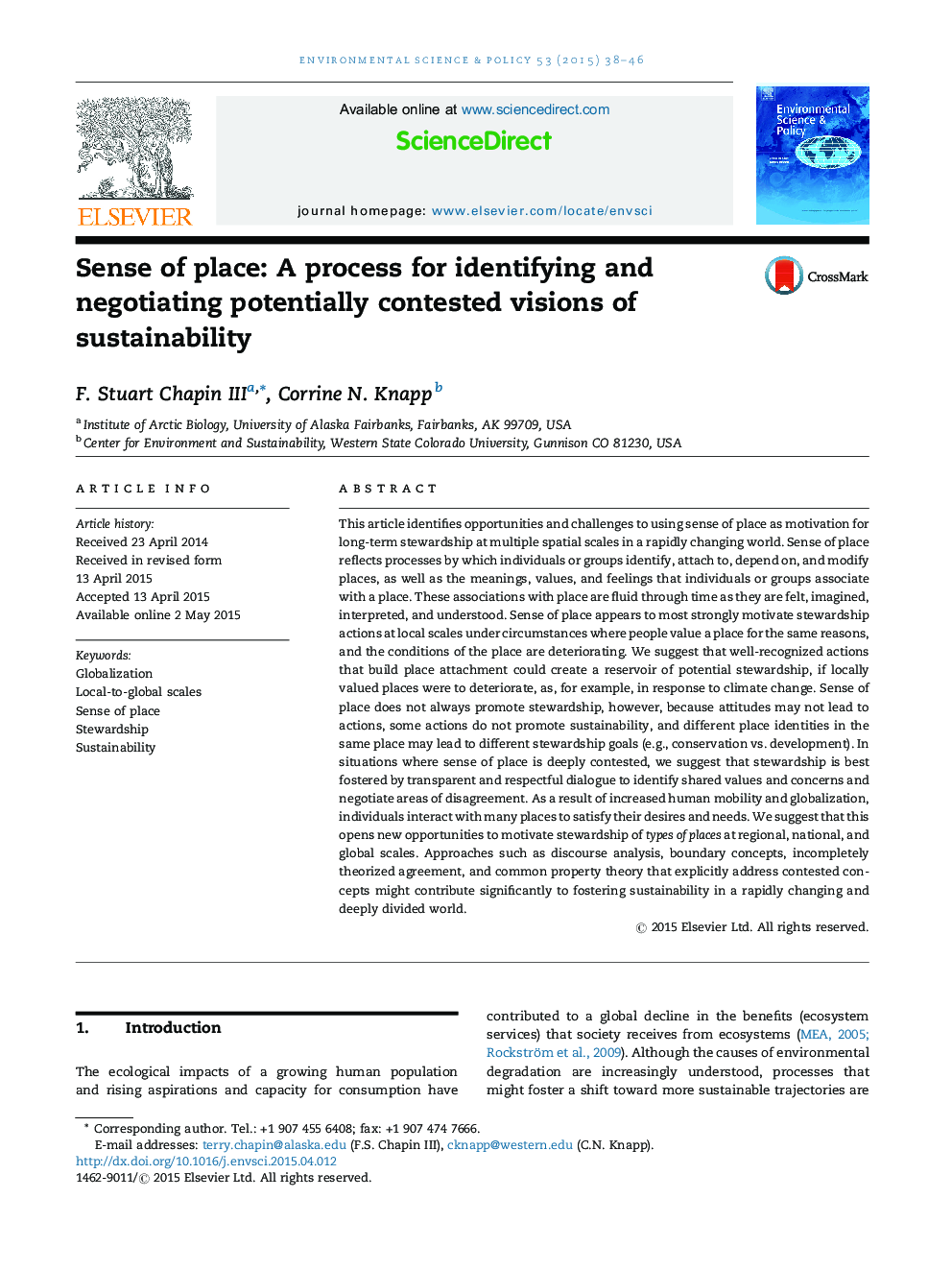| کد مقاله | کد نشریه | سال انتشار | مقاله انگلیسی | نسخه تمام متن |
|---|---|---|---|---|
| 1053470 | 946685 | 2015 | 9 صفحه PDF | دانلود رایگان |
• Sense of place best motivates stewardship in homogeneous communities.
• Multiple senses of the same place can generate conflict.
• Globalization and human mobility may foster commitment to more places.
• These trends provide new stewardship opportunities at local-to-global scales.
This article identifies opportunities and challenges to using sense of place as motivation for long-term stewardship at multiple spatial scales in a rapidly changing world. Sense of place reflects processes by which individuals or groups identify, attach to, depend on, and modify places, as well as the meanings, values, and feelings that individuals or groups associate with a place. These associations with place are fluid through time as they are felt, imagined, interpreted, and understood. Sense of place appears to most strongly motivate stewardship actions at local scales under circumstances where people value a place for the same reasons, and the conditions of the place are deteriorating. We suggest that well-recognized actions that build place attachment could create a reservoir of potential stewardship, if locally valued places were to deteriorate, as, for example, in response to climate change. Sense of place does not always promote stewardship, however, because attitudes may not lead to actions, some actions do not promote sustainability, and different place identities in the same place may lead to different stewardship goals (e.g., conservation vs. development). In situations where sense of place is deeply contested, we suggest that stewardship is best fostered by transparent and respectful dialogue to identify shared values and concerns and negotiate areas of disagreement. As a result of increased human mobility and globalization, individuals interact with many places to satisfy their desires and needs. We suggest that this opens new opportunities to motivate stewardship of types of places at regional, national, and global scales. Approaches such as discourse analysis, boundary concepts, incompletely theorized agreement, and common property theory that explicitly address contested concepts might contribute significantly to fostering sustainability in a rapidly changing and deeply divided world.
Journal: Environmental Science & Policy - Volume 53, Part A, November 2015, Pages 38–46
